Sam Apple is the author of the book Ravenous: Otto Warburg, the Nazis, and the Search for the Cancer-Diet Connection, published in May 2021. In this episode, Sam describes the fascinating life story of Otto Warburg, a Nobel Prize-winning scientist who, despite being both Jewish and gay, survived Nazi Germany because of his valuable research on cellular metabolism and cancer. Sam describes Warburg’s observation that cancer cells consume large amounts of glucose anaerobically – a phenomenon subsequently known as the “Warburg Effect” – and relates how Warburg’s seminal work on this topic was largely forgotten after the discovery of oncogenes, only to regain relevance decades later within the field of cancer biology. Sam sheds light on the current debate around Warburg’s interpretation of the causes of cancer, and Peter gives his personal take on the matter. Finally, Peter and Sam tie it all together with a discussion about cancer prevention, the role of hyperinsulinemia, and the link between dietary sugar and cancer.
Subscribe on: APPLE PODCASTS | RSS | GOOGLE | OVERCAST | STITCHER
We discuss:
- Sam’s interest in Otto Warburg and work as a writer [2:30];
- Otto Warburg’s dedication to science and his complicated life in Germany [14:00];
- Warburg’s interest in cancer and early discoveries about cellular consumption of oxygen [23:00];
- The role models who fueled Warburg’s desire to make a great discovery [34:15];
- How Warburg described the primary and secondary causes of cancer [42:15];
- Warburg’s Nobel Prize in 1931 [45:45];
- Warburg’s life and work during WWII in Nazi Germany [46:30];
- Warburg’s research in hydrogen transfers and coenzymes—his best science? [59:45];
- Warburg’s decision to stay in Germany after WWII [1:03:30];
- Discovery of oncogenes in the 1970s and the decline in interest in Warburg’s ideas [1:07:30];
- The renaissance of Warburg’s ideas on cancer metabolism and a new explanation for the Warburg Effect [1:13:45];
- The argument against the Warburg Effect as a primary cause of cancer and the potential role hyperinsulinemia [1:21:15];
- Identifying primary and secondary causes of cancer for the purpose of cancer prevention [1:27:00];
- The link between sugar, fructose, and cancer [1:35:30];
- Sam’s reflections on the work that went into Ravenous [1:39:45];
- More.
*Notes from intro*
- Sam Apple is a freelance writer and author of several books, including one recently published called Ravenous about Otto Warburg, the Nazis, and the cancer-diet connection, which will be discussed in great detail in this show
- Sam teaches in both the MA and science writing and MA and writing programs at Johns Hopkins
- Prior to coming to Johns Hopkins, Sam taught creative writing and journalism at the University of Pennsylvania for 10 years
- He holds a BA in English and creative writing from the university of Michigan and a master in fine arts in creative non-fiction from Columbia University
- This episode will focus on the life story of the life story of Otto Warburg
- He grew up in Germany before World War II and was influenced by some of the most influential German scientists
- Discussion will focus on his seminal work prior to the second World War and the odd manner in which he was able to remain in Germany unharmed during the second World War despite being both Jewish and gay
- Much of his work would be largely forgotten by the time he died in 1970
- It would only be about 30 years later that some of his observations would come back to be relevant within the field of cancer biology
- It’s still not entirely clear if his hypothesis around that observation is correct
- Peter does not personally think it was
- But nevertheless, this makes for an interesting discussion
Sam’s interest in Otto Warburg and work as a writer [2:30]
Interest in Warburg
- This story began as an article in 2016 in the New York Times Magazine
- Sam’s interest in metabolism began when he read the work of Taubes
- Gary Taubes was a recent guest of this podcast (#167 – Gary Taubes: Bad science and challenging the conventional wisdom of obesity)
- Sam had been interested in metabolism for a number of years but didn’t think of cancer as a metabolic disease or as being lumped together with with obesity, diabetes, and heart disease
- As he read more he began to see that these diseases clustered together and appear in the same pattern beginning in the 19th century; this sparked his curiosity
- Sam remarked that as he read about Otto Warburg “it was kind of a light bulb moment for me… I knew I was going to write about it [Warburg] and I knew I had a way to tell the story”
Sam’s path as a writer
- His father was a writer, though he mostly wrote fiction
- He didn’t choose to follow in his father’s footsteps exactly
“I like to half joke that my big rebellion was moving into non-fiction” – Sam Apple
- He wasn’t sure what his career path would be in college, but he received a lot of praise for his writing
- Praise led him to see that writing was his strength; he enjoyed doing it and was good at it
- Being a good writer is a combination of innate ability and always seeking to improve
- He doesn’t think good writing is correlated strongly with intelligence
- The ability to use language in a certain way comes naturally to some people and not others
- For some, this ability can be developed with enough practice
- Sam teaches writing and science writing at John Hopkins
- Reading just a paragraph of a student’s writing can tell him what kind of feel they have for language
- Even 3-4 sentences is enough to reveal a student’s grasp of language and writing
- He looks for extra words in sentences, tight logic, flow
- Peter notes that it would be very difficult for him to look at the work of 100 students and rank them according to ability
- He can read the work of Siddhartha Mukherjee and recognize it as really, really good
- He can also recognize writing that is absolutely horrible, but he might not be able to explain why
- Reading just a paragraph of a student’s writing can tell him what kind of feel they have for language
- Sam thinks good writing comes down to clarity
- When reading good writing, one can grasp it right away because the language is concise and clear
- If writing has to be read 2-3 times to grasp the meaning, then it’s not very good
“George Orwell famously wrote about politics and the English language and how much good writing depends on clear, concise thinking” – Sam Apple
- Revision is also essential for good writing
- Sam notes that “everything that I write comes out pretty poorly in the first draft, even my emails; if I really care about an email, I spend a lot of time just going over and over and over it because it’s the repetition, it’s correction after correction after correction where the writing starts to improve”
- One difference between a good writer and a less good writer is how many times they go over the work before they are satisfied
- Of course this comes at a cost; time spent worrying about sentences
- After graduating from the University of Michigan, he took a few years off and worked at a magazine
- He then spent 2 years earning a Master of Fine Arts in creative nonfiction at Columbia
- He thought about journalism, but he was more interesting in storytelling and in long-form writing than rigorous reporting
- In the MA in creative nonfiction program, every semester was essentially a writing workshop
- They worked in groups of 15 plus a professor and submitted work 3-4 times during the semester
- Everyone reads and critiquest all the work then discusses it
- Critique and discussion is the heart of most writing education
- It can be a grueling process
- You have to listen to 15 people explaining what is wrong with the submission and often argue if they disagree
- It’s a little crazy trying to make ones work fit everyone expectations
- Some writers have been pushing back against this workshop approach because they feel it turns every piece into sort of a formulaic story in order to meet everyone’s expectations
- This lacks experimental work; this is part of the debate ov writing education
- Sam feels feedback is essential to know when ones writing is working; so much of it is trial and error
- Peter notes how amazing it is to read the works of authors such as Atul Gawande, Sid Mukherjee, and Azra Raza, who didn’t train in writing but write beautifully
- Sam agrees, “it’s beyond amazing. It’s actually really annoying and frustrating. I’ll admire all three of the people you mentioned. And not only are they exceptional writers, but they’re full-time physicians and doing these incredible things. And it just absolutely blows my mind that they have the time to do it.”
- They are almost unimaginably good at writing; very few people reach this level
- One can still do good work even without reaching that level
Otto Warburg’s dedication to science and his complicated life in Germany [14:00]
Otto Warburg’s childhood and inspiration to pursue science
- He was born into pretty well-to-do German family in the latter third of the 19th century
{end of show notes preview}
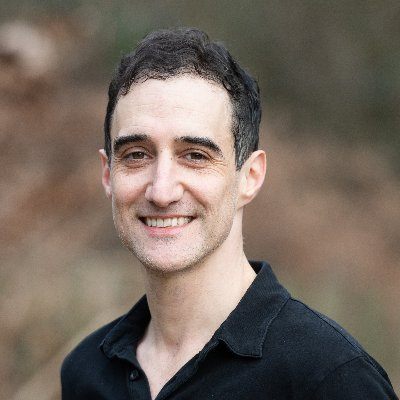
Sam Apple
Sam teaches in both the science writing MA and MA in writing programs at Johns Hopkins. Prior to coming to Johns Hopkins, Sam taught creative writing and journalism at the University of Pennsylvania for 10 years. He holds a BA in English and creative writing from the University of Michigan and a master in fine arts in creative non-fiction from Columbia University.
Apple is the author of Ravenous, American Parent, and Schlepping Through the Alps. He has published short stories, personal essays, satires, and journalistic features on a wide range of topics. In recent years, he has primarily written about science and health. His work has appeared in The New York Times Magazine, The New Yorker, The Atlantic, Wired, The Los Angeles Times, The Financial Times Magazine, ESPN The Magazine, The MIT Technology Review, and McSweeney’s, among many other publications. Schlepping Through the Alps was a finalist for the PEN America Award for a first work of nonfiction. [Amazon.com]

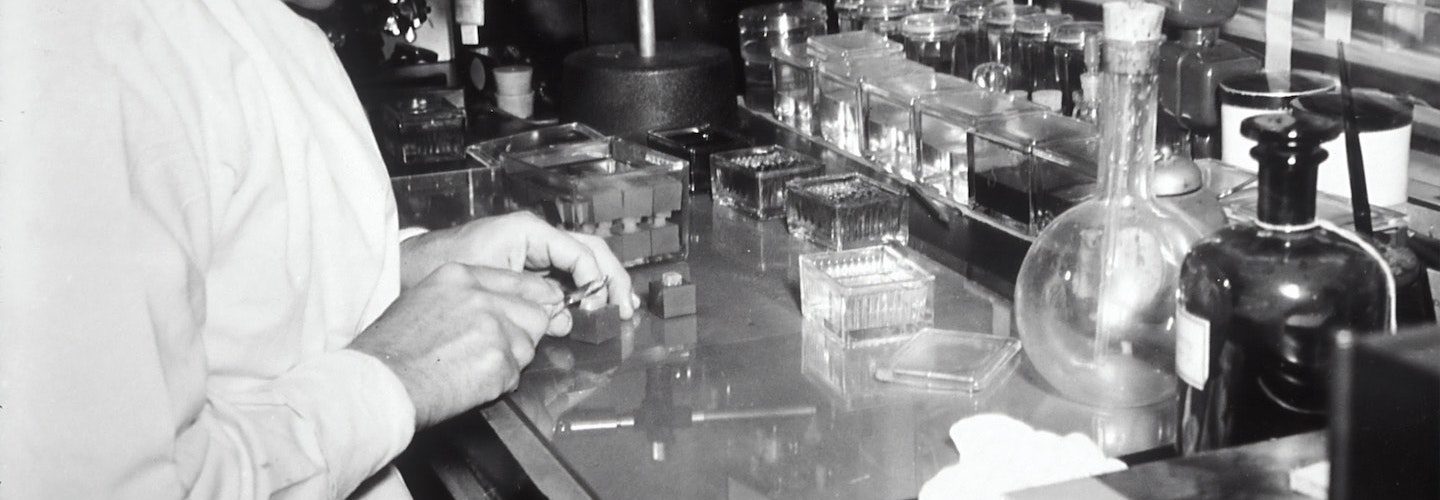
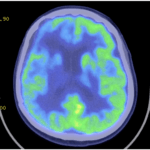
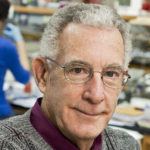
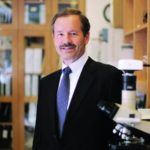
Many thanks to Sam for his efforts to write a great book. Fascinating subject and tied to so many complex ideologies. Great job Sam.
Great podcast! My neighbour’s dog is very grateful as we enjoyed a long walk together while I had my headphones on.
I do have a minor quibble (emphasis on “minor”): To give Warburg and Koch their due, they could have taken great exception to your mention of primary and secondary causes of cancer, which is fraught with Aristotelian overtones of medieval philosophy (still being taught in German Gymnasia logic classes of their day, along with Greek & Latin). I am pretty sure Warburg would have preferred a two-by-two matrix of “necessary” versus “sufficient” aligning more along Koch’s postulates.
I learnt a lot! Thanks for another great podcast!
Covid induced reading time in the last year has taught me much with Apple’s Ravenous; several of Lustig’s tomes including Metabolical; Artney’s Rebel Cell;
Fung’s Cancer Code. etc….
Podcast Terrific. Two thinkers, gone at it and somewhere in there is a guide. Relief from so much trash on the web!
Wowed!! Outstanding podcast, a difficult topic explained superbly in the context of history.
In my view, lack of mitophagy is the key to understand the why…. Lysosomes ameliorate the effects of accumulated ROS/Free radicals, lead to oxidative stress… likely changing function due to structural changes in IMM and cardiolipin by remodeling. This is mitigated with autophagy, not antioxidants.
Electron transduction flow and proton gradient potentials get hindered, thus the proton motive force that makes ATPase spin lessens. Hence, fatigue, poor energy. Glycolysis takes over to produce atp … explains the ACCORD study if visualized abstractly, intense glucose control is via upregulation of Insulin receptor sequence is a terrible idea. Causes mitochondrial bioenergetics stress, leading to higher productivity of free radicals and ROS
This is the bottle neck that leads to insulin resistance/ hyperinsulinemia. By the time some types of cancer is a possibility due to mitochondria metabolic disturbances there is cristolysis and many other factors driving the shift into this malignancy.
To understand all this, how is tied up to the GUT incretins and frequent overconsumption of UPF formulations study the Enteroendocrine cell dynamics, post prandial effects.
Mitophagy and avoiding frequent overconsumption of UPF products is key for avoiding “commodity food diseases “… the nexus of modern diseases.
There is lots to connect, like a James Burke episode. Hope this made any sense, for me it seems like the smoking gun to the predicament we are as a society.
Keep up the great conversations for Best exposomes for healthspan… Eat real food, not formulations. Skip a meal, wake up with the sun, exercise/ movement….
better for primary prevention than the combo of statin, ace inh, antihyperglycemics we are offering to the general public.
All my best,
Juan